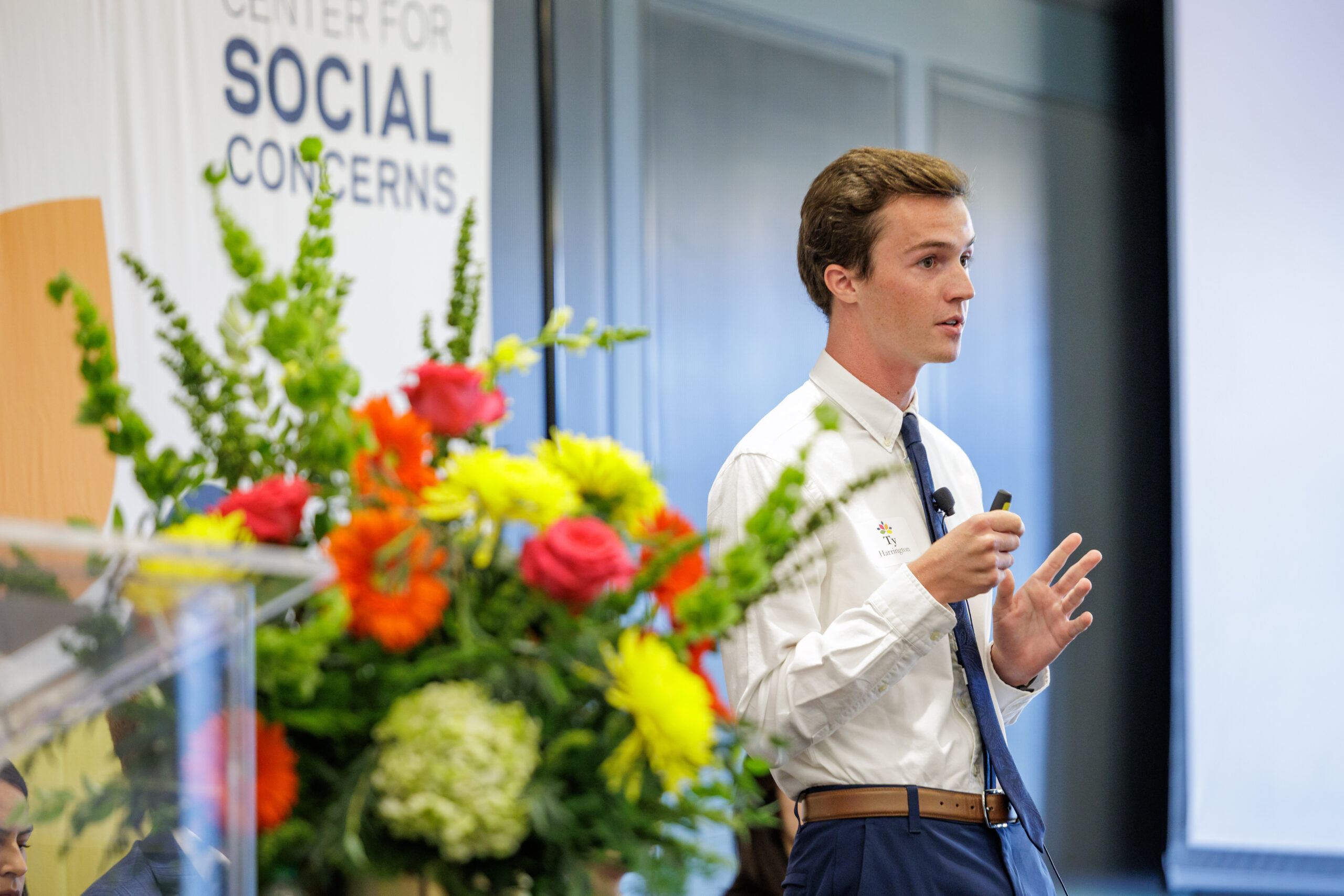Virtues & Vocations hosts 2024 conference on higher education and human flourishing
June 27, 2024
On a sunny evening in early June, 125 people descended on Notre Dame’s campus and packed into McKenna auditorium to hear New York Times columnist and bestselling author David Brooks open the Virtues & Vocations conference on Higher Education and Human Flourishing. The audience included current and former university presidents, department and program heads in schools of medicine, engineering, business, and law, along with faculty and administrators from across the United States, Mexico, Canada, and the UK.
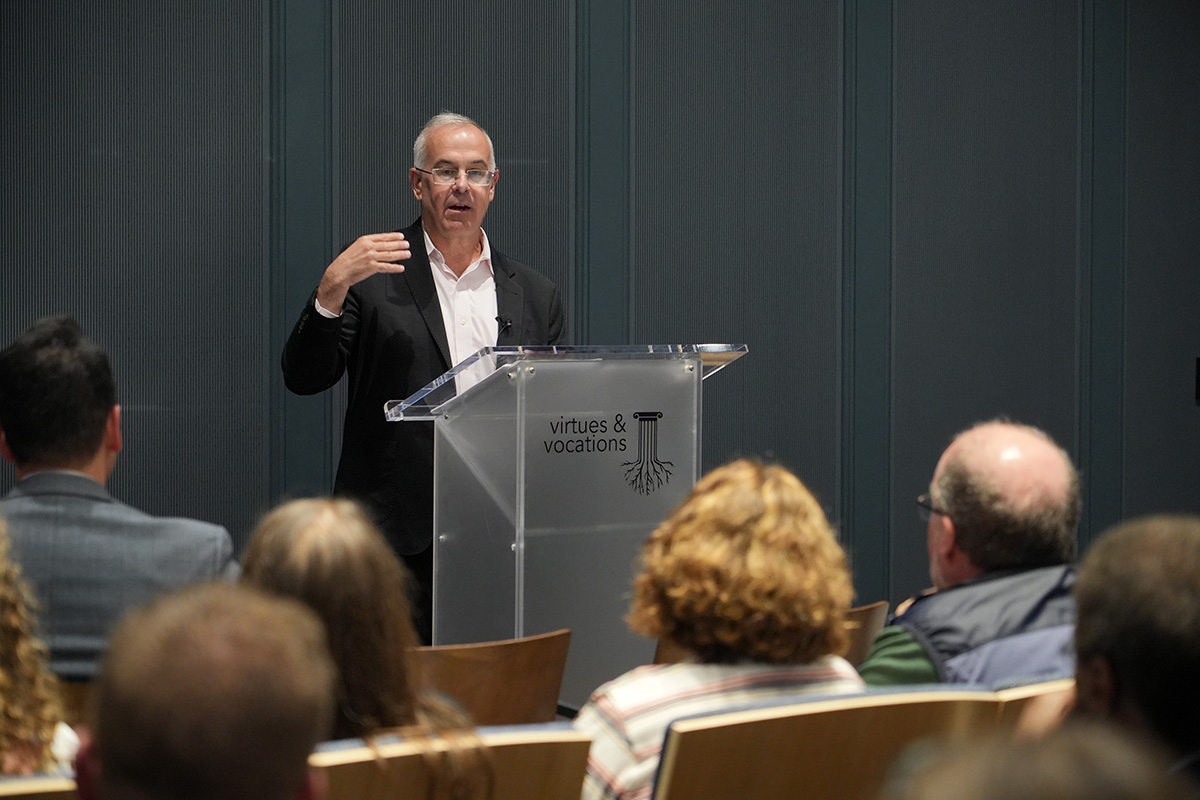
“I know universities can play a role in changing the souls of students, because it happened to me,” Brooks said. As the author of books such as The Road to Character, he has long been an advocate for personal formation. But his talk, and indeed the rest of the conference, placed issues of formation within a larger social context and underlined how forming individual character is a fundamental component of a flourishing society. “Part of the reason people are so interested in virtue and character and moral formation is that we just live in a brutalizing time.”
Suzanne Shanahan, Leo and Arlene Hawk Executive Director of the Institute for Social Concerns, agrees that the work of cultivating moral purpose and character in students is inseparable from the work of promoting justice and the common good.
“At the Institute for Social Concerns we know that a just society depends on people who are committed to justice working in all the many professions that make a society — engineers, lawyers, doctors, teachers,” she said. “We move toward justice in the actual work we do and lives we live in the world. Formation matters and systems matter. You can’t change systems without good people who have a vision for pursuing the good. Our research and work at the Center put this into practice in our classes, programs, and community partnerships. We were thrilled to be able to share this work with leaders from large and small, public and private institutions, and to learn from the good work they are doing.”
The keynotes, plenary panels, and breakout sessions at the conference emphasized these two key components of pursuing the common good: cross-professional discussion about how these commitments play out within one’s work, and a larger discussion about the responsibilities of higher education within a flourishing democracy.
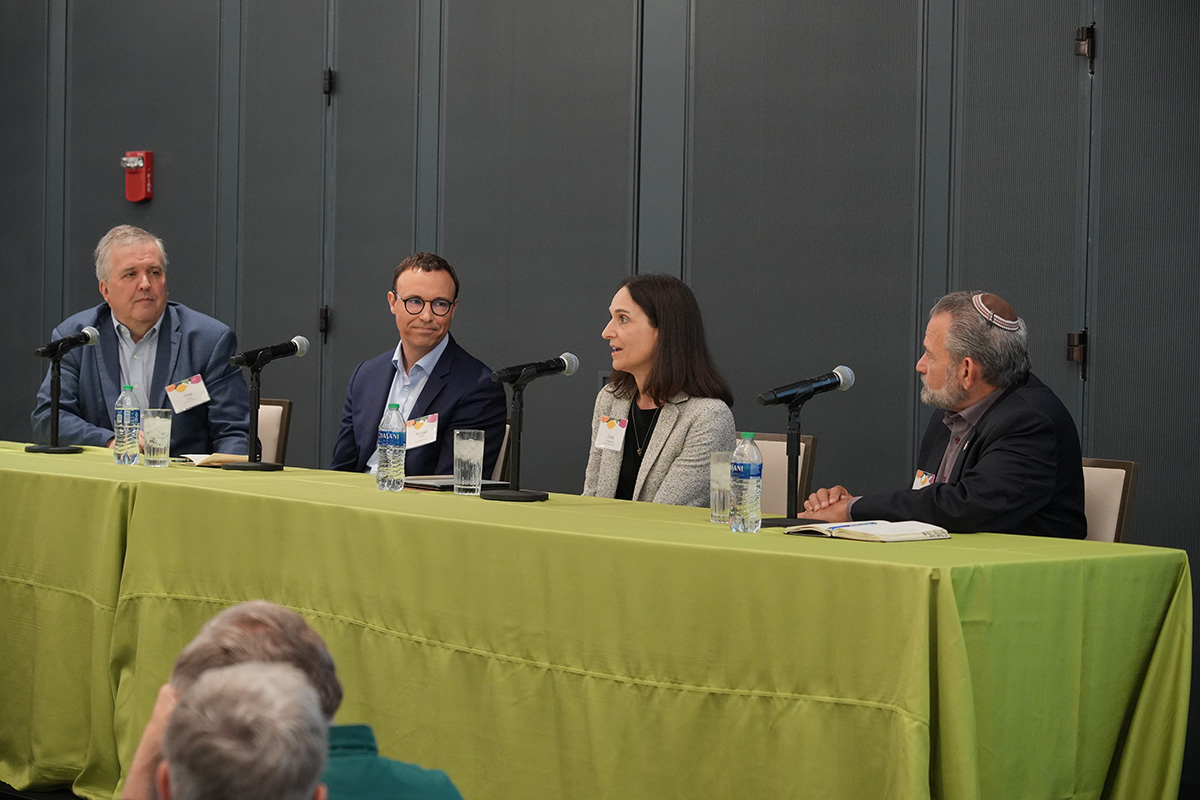
Cristy Guleserian is the executive director of Principled Innovation at Arizona State University’s Mary Lou Fulton Teachers College, which prepares educators to be changemakers capable of designing and delivering equitable learning opportunities for all kids. As faculty and administrators were launching the initiative in 2017, they realized that formation needed to be part of preparing educators to become innovators.
“We recognized that we couldn’t have these conversations without talking about character,” Guleserian said. “The character component was what was going to be at the core of the decisions we were making as we were innovating within systems.”
Guleserian’s point about preparing students to be principled, innovative teachers — which she made during a panel discussion about creating cultures of character on campus — can be extended to any professional school setting. The students in a professional school may be there for a credential and to learn the skills they need to be excellent lawyers or doctors or engineers. But many faculty members believe their role as professors goes beyond skills and credentials.
John Inazu, a professor of law and religion at Washington University in St. Louis School of Law, noted that empathy is an essential virtue for effective attorneys. “I think good legal training is training in empathy,” he said. “You have to understand the other side as well as possible. You have to put yourself in someone else’s shoes.”
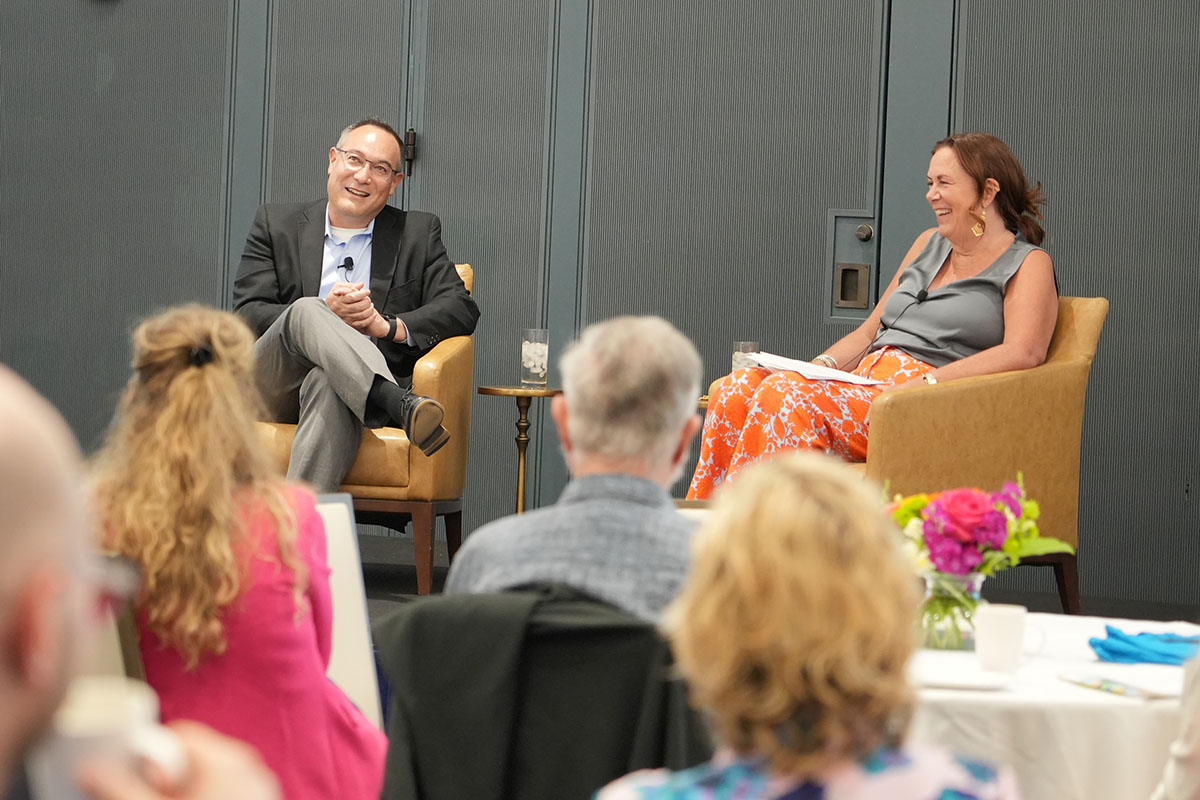
Inazu and Shanahan discussed his latest book, Learning to Disagree: The Surprising Path to Navigating Differences with Empathy and Respect. During the fireside chat, he highlighted the importance of nurturing a temperament that enables people to converse with others of different political, religious, and ideological views. We can be honest about differences and still be okay with those differences, he said, and think that someone is wrong without thinking they’re evil.
“I sometimes get called a centrist or a moderate, and I really dislike that label because I don’t think I’m centrist or moderate about any of my substantive positions. I think I have very strongly held views about lots of things,” Inazu said. “But I do have a kind of temperament that says, ‘I don’t know, maybe I’m wrong about this. Or I can learn from you and you.’ I’m not a relativist, but I want to listen and engage. I think there’s a kind of temperament around that.”
Higher education is particularly well situated to cultivate this capacity for discourse in a pluralistic society because it has historically been a place where conversations about important questions across differences is modeled in the classroom.
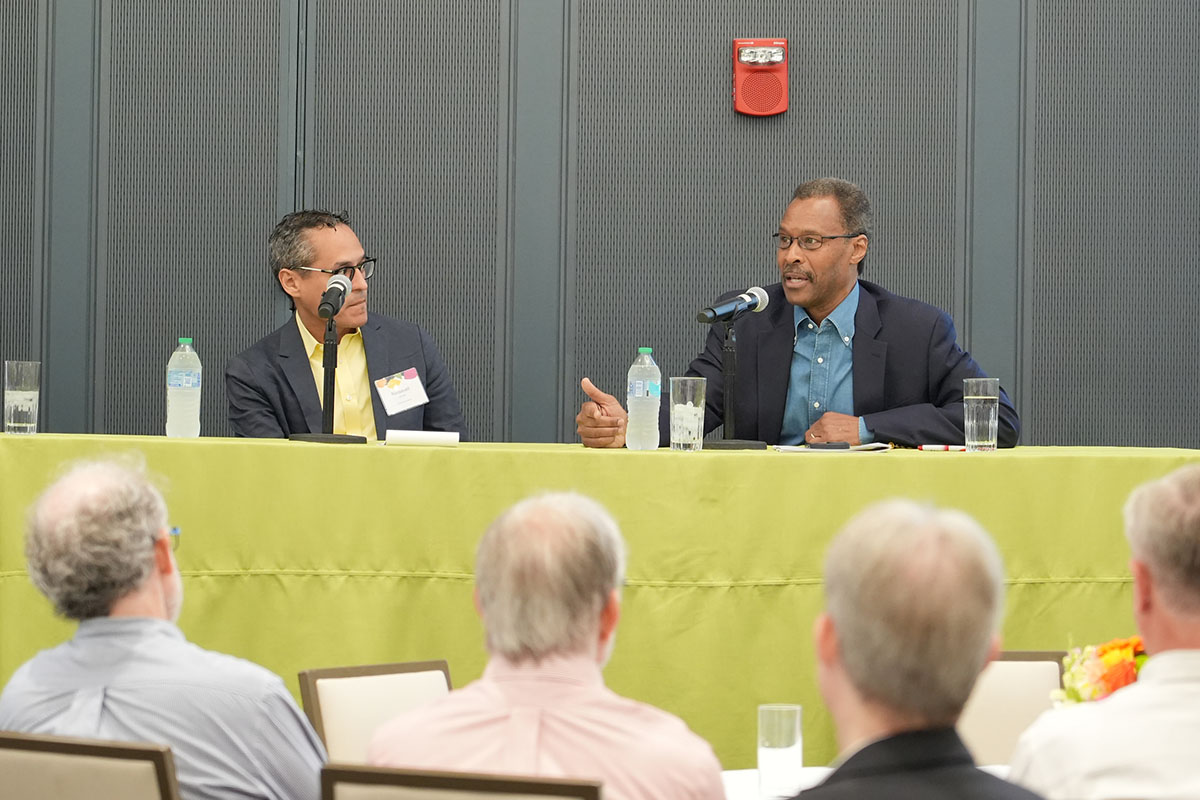
“These capacities for self-governance are the ones that a liberal education, a character education, a formative education concerns itself with,” said Roosevelt Montás, Director of the Freedom and Citizenship program and a senior lecturer in American studies and English at Columbia University. “That’s why our job — the job of higher education — is absolutely critical to the nourishing and the sustenance of a democracy.”
John Silvanus Wilson, former president of Morehouse College, joined Montás on a plenary panel on Virtue, Democracy, and Civil Discourse on campus. He asserted that historically black colleges and universities have always been committed to furthering the cause of democracy and that higher education must learn from their example.
“John Dewey said in 1916 that democracy has to be born anew every generation, and education is its midwife,” Wilson said.
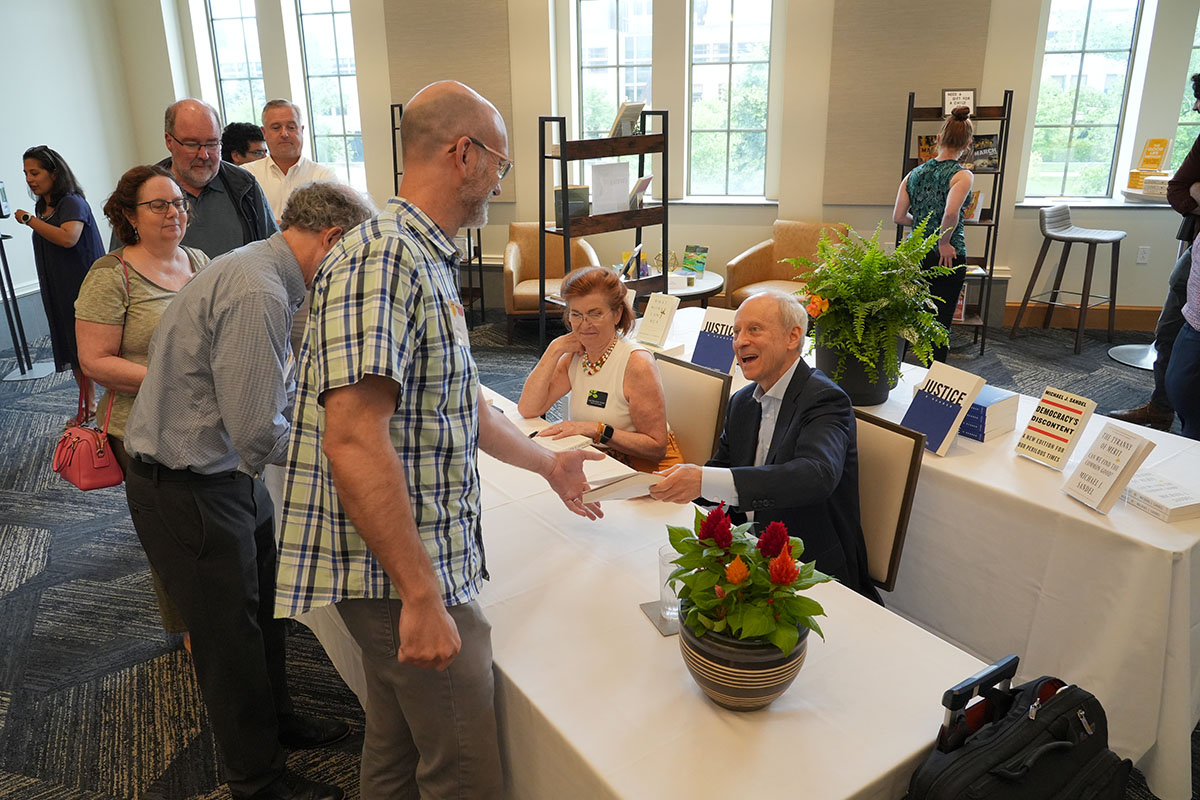
Michael Sandel, a professor of political philosophy at Harvard University and bestselling author of Justice, Democracy’s Discontent, and The Tyranny of Merit: Can We Find the Common Good?, tied together the themes around democracy, virtue, higher education, and work in his closing keynote.
“Higher education derives much of its prestige from its avowedly higher purpose,” Sandel said, “not only to equip students for the world of work but also to prepare them to be morally reflective human beings, effective democratic citizens, capable of deliberating about the common good.”
But, he added, we should not assume that four-year colleges and universities have a monopoly on that notion. “Civic education can flourish in community colleges and job-training sites and union halls as well as on ivy-strewn campuses,” he said.
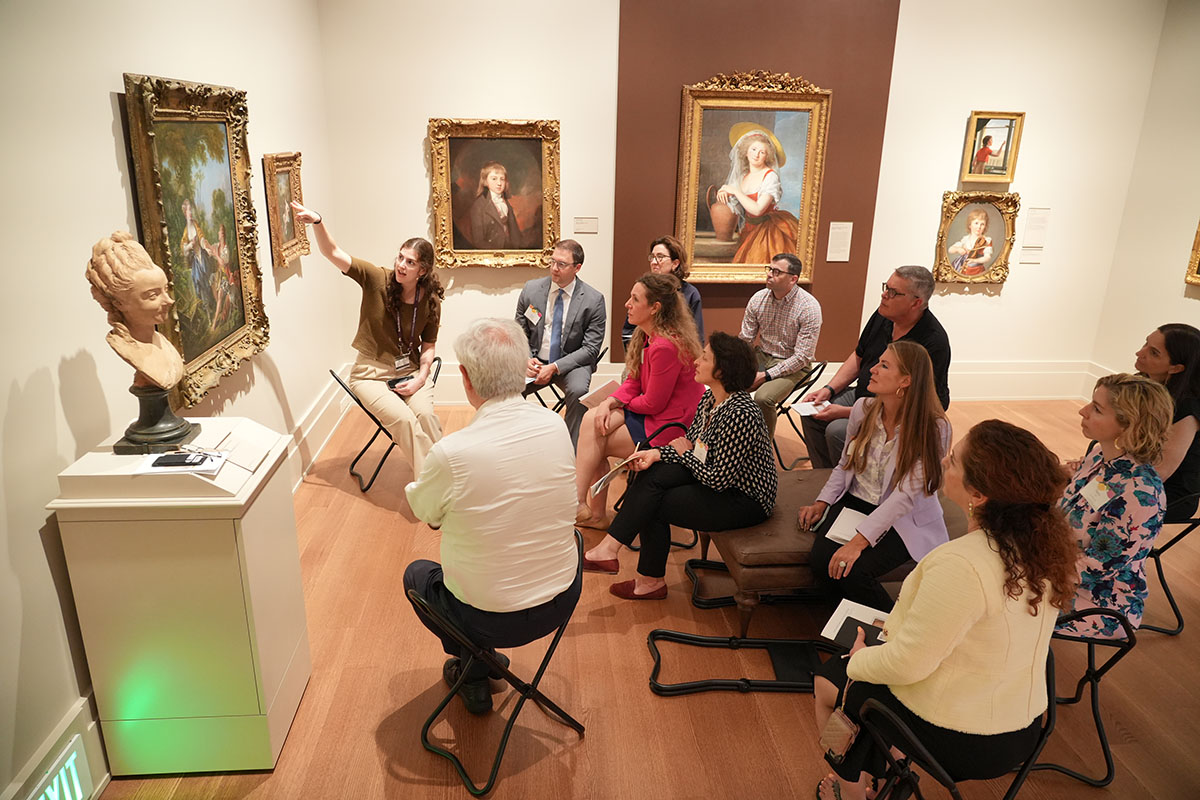
While the content of the conference was important, flourishing is not just a concept, it is an embodied way of being. The Institute for Social Concerns sought to give participants a taste of the good through providing good meals with time to linger over conversations; optional activities such as tours of the Notre Dame campus and the Basilica of the Sacred Heart, a nature walk around Notre Dame’s lakes, and a session at the Raclin Murphy Museum of Art; a curated bookstore and reading space; and even a “Late Nite at Geddes” gathering where attendees could relax and build friendships.
“This was a beautiful conference that went beyond niceties to provide context for sharing, community building, and befriending,” said one attendee in the post-conference survey. “Radical hospitality makes a difference in how people feel and creates a climate of trust and goodwill.”
Watch the conference sessions on the Institute for Social Concerns’ YouTube channel:
Related Stories
-
ReSearching for the Common Good: Jenifer Guadalupe Solano Becerra
-
Engaging South Bend—University faculty explore research collaborations with regional organizations through institute’s Engage South Bend tour
-
Two paths, one destination—Postbaccalaureate research fellows join the institute to research mass incarceration
-
Extraordinary good for this world—Researching for the Common Good Symposium celebrates undergraduate summer research
-
Social Concerns Summer Fellow returns to India for ongoing research





